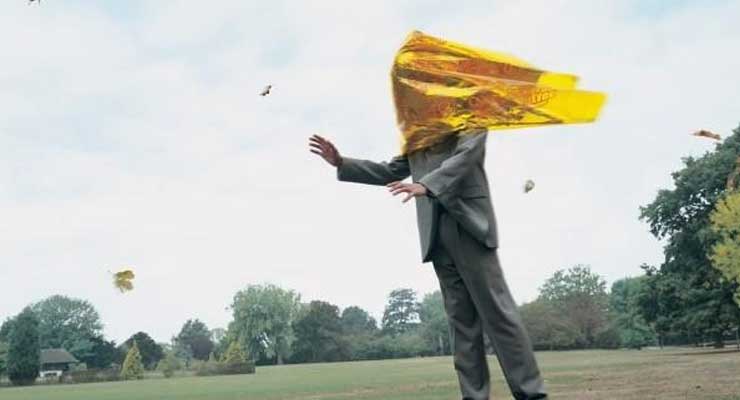
From Columbia Business School:
Higher wind speed makes voters seek safety and the status quo, while low winds glide voters toward change and greater risk, says new study that analysed 100 years of US elections and the Brexit and Scotland votes in Britain. Wind-tossed boats seek a quiet harbour, while gust-blown pedestrians grab streetlamps for stability. Bluster begets a desire for safety and security, while tranquil and windless conditions can make the mind wander imaginatively and even adventurously.
A new academic study shows that wind also consistently affects how we vote in elections by appealing to the same desire for security or change – whether we know it or not.
The research paper, by academics working in Britain, the US and Germany, found that wind speed affected voting behaviour across 100 years of U.S. elections (1912-2012), 10 years of Swiss referendums (2005-2014), and two crucial votes in Britain – the June 2016 “Brexit” decision to leave the European Union and the September 2014 vote in Scotland to remain part of the United Kingdom. It may be unsurprising that foul weather lowers voter turnout, so the study focuses instead on actual voting decisions.
The key finding: when wind speed increases, voters seek safety, risk aversion, and the status quo – what psychologists call a “prevention-focus”. In contrast, low winds glide voters toward greater change and the willingness to take a risk.
“We surprisingly find that weather – specifically, wind – on Election Day affects voting decisions,” the study says. Voters “are influenced not only by the particular stances of political parties, candidates, or campaigns, but also by the environment in which those stances are evaluated and put to a decision.”
The research paper – entitled “Weather Affects Voting Decisions” – was co-authored by Jon Jachimowicz, a PhD student at Columbia Business School; Jochen Menges, University Lecturer in Organisational Behaviour at Cambridge Judge Business School and a Professor of Leadership at WHU – Otto Beisheim School of Management in Germany; and Adam Galinsky, Chair of the Management Division and Vikram S. Pandit Professor of Business at Columbia Business School.
The study shows that the effect of wind speed in most cases accounts for no more than 1% of the final vote. It was completed prior to Donald Trump’s narrow win over Hillary Clinton in this month’s election, so it didn’t measure whether low winds may have benefited Trump, the change candidate. But the closeness of the election – a swing of just 110,000 votes in Pennsylvania, Michigan and Wisconsin could have won it for Clinton – means that every factor, including wind, is worth watching in the future, the authors say.
The paper shows that voters exposed to higher wind speeds are more prevention focused and more likely to support the prevention-focused option in elections. That option may be a predictable incumbent, the preservation of the status quo, or the low-risk choice. In Scotland’s 55%-45% referendum result in 2014, voters decided to preserve the status quo by remaining in the UK. By contrast, people exposed to no or low winds are more apt to take risks for change, such as the Brexit referendum in which the “Vote Leave” campaign emphasised that Britain would gain control and freedom by leaving the EU.
To study wind speeds during the two recent UK votes, the researchers examined weather data during the day that polling stations were open, in 10-minute intervals and at five different location points for each council area (381 in the UK, 32 in Scotland). The finding: Councils with higher average wind speed on Election Day were more likely to have higher levels of votes to remain in the EU in 2016 and to have Scotland remain in the UK in 2014.
For the 100 years of U.S. presidential elections and 10 years of Swiss referendums, independent raters assessed campaign arguments on a six-point scale of prevention-versus-promotion, and average wind speeds were compiled for each U.S. state and Swiss canton. Wind speed had no effect in those elections in the U.S. and Switzerland where both voting outcomes reflected safety and security, or when neither option did. But it did relate to election results when a prevention-oriented option was pitted against an option in favour of change.
These historical analyses were supplemented with field studies and laboratory experiments. One field study focused on people departing from the Staten Island ferry terminal in Manhattan, where on a windy day people were more likely to reject independence for Staten Island in a hypothetical vote – thus choosing the status quo option. In a lab experiment, volunteers were placed in front of electric fans, and those whose fans were turned on were more likely to vote against Staten Island secession.
The findings challenge conventional wisdom that voting decisions are a result of careful deliberation and conscious choice, showing that people’s decisions are influenced by factors that they are not even aware of, the authors say.
“From a rational choice model of political behaviour, voting on a windy or non-windy day should have no effect on election outcomes,” the study says. “The results suggest, however, that in elections that feature a choice between prevention- and promotion-oriented options, wind speed has consequences for the outcome.”
Donald Trump’s surprise election victory showed that pre-election polls can be misleading for a variety of factors that might include failure to motivate core supporters to vote, last-minute surges, or faulty poll metrics. The new study adds yet another element – the wind – to this uncertain mix.
Leave a Reply